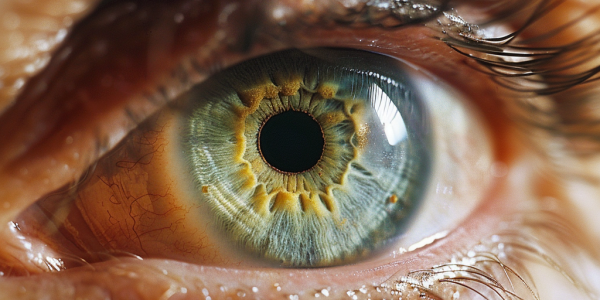Study Finds Potential Breakthrough in Treatment of Age-Related Macular Degeneration
Groundbreaking study led by University College London researchers may have discovered a potential breakthrough in the treatment of age-related macular degeneration (AMD), the leading cause of vision loss among older adults. With around 200 million people worldwide currently suffering from AMD, finding effective treatments is crucial. Learn how increasing levels of a key immune-regulating protein could protect against AMD and preserve vision in individuals at risk.
Study Shows Minocycline Did Not Slow Vision Loss in Dry AMD
A recent clinical study at the National Eye Institute (NEI) has shown that the antibiotic minocycline did not slow vision loss or expansion of geographic atrophy in people with dry age-related macular degeneration (AMD). The study aimed to test whether inhibiting microglia with minocycline might help slow geographic atrophy expansion and its corresponding vision loss, but found no difference in geographic atrophy expansion rate or vision loss with minocycline. This study provides valuable insights into potential treatments for dry AMD and the role of inflammation in the progression of the disease.
Groundbreaking Light Therapy Treatment for Age-Related Macular Degeneration Now Available in the UK
Exciting news for patients with age-related macular degeneration (AMD) as the first treatment for the condition is now available in the UK. A non-invasive light therapy treatment aims to stimulate cells at the back of the eye, offering hope for individuals with dry AMD. With an estimated 700,000 people in the UK affected by AMD, this development brings a ray of hope for those grappling with the impact of this condition.
Study Links Outdoor Artificial Light at Night to Increased Risk of Wet Age-Related Macular Degeneration
A recent study has suggested that higher levels of outdoor artificial light at night may be linked to an increased risk of developing wet age-related macular degeneration (AMD). The study, which utilized nationwide population-based data in South Korea, found that…
AI Integration in Ophthalmology for Healthcare and Drug Discovery
AI Integration in the Fight Against Age-Related Macular Degeneration Jan 3 2024 Reviewed by Danielle Ellis, B.Sc. In a recent interview at ELRIG UK Drug Discovery 2023, Wen Hwa Lee, CEO, and Chief Scientist at Action Against Age-Related Macular Degeneration…





